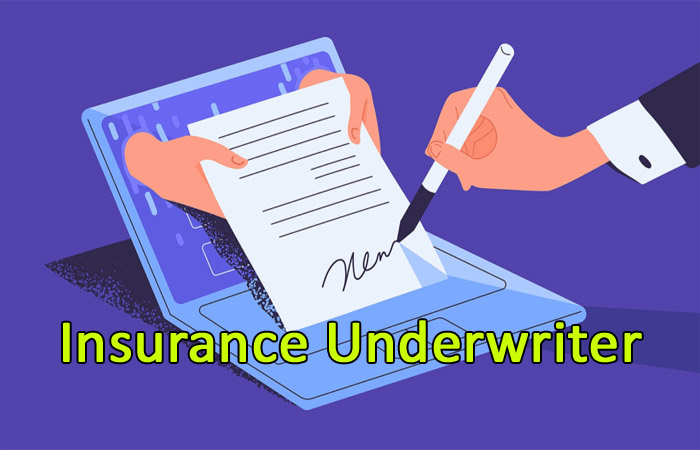What is the role of an Insurance Underwriter?
Most of us might not be aware of the job description of an “insurance underwriter” in the insurance industry. But, this is one of the remarkable jobs in the insurance sector that can yield a good income. This is the most responsible job, and the duties involved might seek more attention and skills.
Anyone in the insurance industry might want to know more about this job description and choose it as their profession. However, if you are interested in knowing what is meant by underwriting and the types of underwriting in insurance, then here are more interesting facts and information for you.
Underwriting meaning in insurance
How do insurance companies make money?
Like most companies, insurance companies also make money by betting out of huge risk. The business arrangement that an insurance company has with an individual, organization, or company is the revenue model that they adopt. In this model, the insurer promises to pay an amount of money for some specific type of asset loss that might happen to the insured, which can be damage, illness, death. As a return, the insurance company receives a regular payment from the customer for the insurance plan covering life, auto, business, home, health, or any other assets.
The insurance company promises to give the said payouts via an insurance contract signed by the client and the insurance company. Although this might appear to be easy, it might get complicated in real-time to process. In this case, the role of the underwriter becomes crucial.
Brief about Insurance Underwriting and underwriter
Insurance underwriting involves evaluating risks for insuring property, auto, assets, or people. The insurance underwriter will determine an application for insurance to be accepted or not and establish a premium payable on a policy.
The underwriter also decides if an individual, family, or organization can be provided with insurance.
Role of an underwriter in insurance
The role of an underwriter in an insurance company will vary according to the type of insurance that he deals with and the company he works with.
To describe further;
- Commercial Insurance: In this case, the underwriter will analyze an insurance application for companies doing business. Their insurance requirements could be General Liability, Property Insurance, Business Interruption Insurance, Workers’ Compensation Insurance, Commercial Auto Insurance, Cyber Liability Insurance, Management Liability Insurance (D&O), and much more.
- Auto Insurance: In this case, the underwriter reviews the policyholders’ application and determines the risks involved in providing him an insurance plan
- Life Insurance: In this case, the underwriter will evaluate the age, health, medical history, income, and other essential factors of the policyholder before providing an insurance plan.
- Health Insurance: In this case, the underwriter will determine the premium for the health plans.
- Business Insurance: In this case, the underwriter will determine the risks involved and determine the policies that can help the business in the best ways during an event of damages or income loss.
Duties of Insurance Underwriter
- The underwriter will analyze the application form and the information on it before providing insurance.
- He will determine the risks involved in issuing insurance for the client
- He will screen the application about the factors like age, history, financial status, health, and other factors
- He calculates the premium based upon the risks and other information the applicant provides
- Decides whether to provide insurance or not for the applicant
- He will also determine how much premium to pay and what the cover to be given for an applicant
Becoming an Insurance Underwriter
The underwriter job in the insurance industry might seek typical duties, qualifications, and skills to become qualified. To apply for this job, here are some qualifications you must meet:
- Should hold a bachelor’s degree or any equivalent qualification relevant to the insurance industry along with work experience.
- The candidate applying for an underwriter job should have strong analytical skills, decision-making skills, mathematics skills, computer skills, attention to detail, good communication skills, and more.
- Besides a bachelor’s degree, you can also enhance your qualification by taking underwriting courses, which will be an additional credit to get placed quickly.
If you seek some additional training and build your qualification to become an underwriter, then there is also professional training provided for the same. This training will range from basic levels to advanced levels.
Underwriting Certification
There is also certification provided with the underwriting training courses. These certifications are available even for advanced-level senior underwriters. This can also help you reach a management position in underwriting jobs.
By obtaining the training and certification, you will also become knowledgeable and skilled in the latest insurance norms, new technologies, changes that have recently happened in the state and federal level regulations, and much more.
Here are a few remarkable Underwriting Certifications:
- Chartered Property and Casualty underwriter certification
- Life underwriter training council fellow certification
- Chartered life underwriter certification
Finding Underwriter jobs
This can appear to be a challenge once you are completed with training and certification. Here is a small guide to help you understand how you can find your underwriting jobs easily and quickly:
Once you hold a degree and certification required for an underwriting job, you need to start looking for insurance companies that are in need of an underwriter.
Try to apply for the job offers you find.
You need to be very clear about securing your entry-level underwriting job.
Your chance to maximize your job potential will depend on your education, experience, credentials, and other required skills.
Create a professional and valuable resume for the underwriting job.
Ensure you have the following skills:
- Skill to analyze the data provided by an applicant
- Assess the risk that an applicant has
- Operate the underwriting software
- Evaluate the recommendations prompted by the software
- Research the applicant details as necessary
- Ability to decide if to provide insurance or not for the applicant
- Determine the premium and cover that can be provided
Along with these skills, you should also ensure you build your responsibilities, dedication, and interest to perform as a successful underwriter for the insurance company.





























